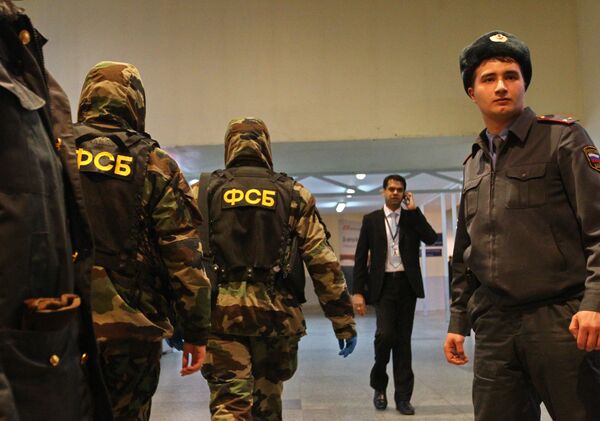Terrorists have attacked Moscow's Domodedovo airport, staging the attack where it is most vulnerable, in the open-access international arrivals lounge. Anyone can just walk in, and that's precisely what the terrorists did, exploding the device among the crowd of people who had come to welcome their loved ones home.
Initial reports suggested that the blast had been intended to take place on board an airplane but that, for some reason, it detonated late, after landing. That sounds unbelievable and illogical (since then the possibility has been firmly ruled out). The reality, it turned out, was much simpler and infinitely more terrible.
The suicide bomber entered the airport quite freely. After 9/11 in the United States and subsequent terrorist attacks in other countries, airports across the world introduced strict security measures for departing passengers and aircraft. But they have done little or nothing to ensure the safety of those coming to welcome their friends and loved ones home, at least that's the case in Russian airports.
Anyone can enter the arrivals lounge carrying anything they like. The metal detectors positioned near the entrances are either switched off (as was the case in Domodedovo, according to eyewitnesses) or there is nobody to monitor them. As a result, people bypass them; my colleagues and I have seen this happen more than once.
The reason for that lacuna is apparent: passengers are screened later, some are even searched, and their luggage is carefully examined, so why go to the extra effort and expense through introducing additional security checks?
Security services across the world are always wise after the event but often lack foresight. That is why 35 people died at Domodedovo airport. President Medvedev has ordered that special security measures be introduced across Russia's airports, with the strict monitoring of both exits and entrances. But this post-hoc measure can do nothing to help those who died in the Domodedovo attack.
On the other hand, the security services are not the only ones to blame. The airport authorities should have done their bit too, but they were derelict in their duties. Because everyone must be presumed innocent until proved otherwise, I cannot, for the moment, describe their negligence as criminal.
In many countries where the terrorist threat is especially high, such as Israel, you cannot even enter airports without being screened by security. I wonder why no one checked whether the metal detectors at the entrances to Domodedovo airport were in working order.
Were they saving money? Were they short of funds? One way or another, the January 24 attack has further damaged the airport's prestige, already tarnished by the blackouts that followed late December's freezing rain.
Not everyone behaved honorably on January 24. Some unscrupulous taxi drivers charged as much as 10,000 or 20,000 rubles per trip from the airport to Moscow. Drivers complained of heavy traffic on the highway leading up to the airport, Kashirskoye Shosse, which obstructed ambulances even though they had all sirens blaring.
On the other hand, an announcement was made saying that Aeroexpress trains would transport people from the airport to Paveletsky rail station in Moscow, and transit passengers whose flights had been rerouted to Sheremetyevo and Vnukovo, free of charge.
Twitter bloggers encouraged car owners to go to the airport to drive people home, and many volunteers answered their call.
In other words, even businesses can behave honorably in emergencies, as Aeroexpress showed, and greed does not make everyone forget their humanity.
Lastly, the Domodedovo blast showed how much the global information space has changed. The first news about the explosion was posted on Twitter and soon spread across blogs and social networks. News agency journalists started covering the tragedy only later; they simply do not have the technology to act faster than the bloggers or microbloggers, many of whom were right on the spot and so the first to post their information on the Internet.
There are positive and negative aspects to this. On the one hand, no tragedy, disaster or emergency can now be kept secret from the general public. On the other hand, technology can also be used to place misinformation or spread panic, which is something the authorities should take into account.
The views expressed in this article are the author's and do not necessarily represent those of RIA Novosti.



